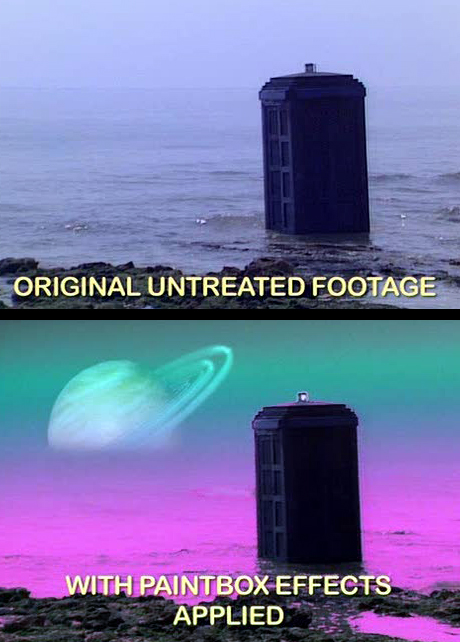Transmat:Doctor Who: Difference between revisions
No edit summary |
Eyacorkett (talk | contribs) mNo edit summary |
||
| (48 intermediate revisions by 8 users not shown) | |||
| Line 1: | Line 1: | ||
__NOTOC__ | __NOTOC__ | ||
{{template:transmat:{{PAGENAME}}}} | {{template:transmat:{{PAGENAME}}}} | ||
<div | <div id="tr-box-container" style="width:98%"> | ||
<div id="tr-box-container" class="tr-box-cols" style=margin-top:40px> | <div id="tr-box-container" class="tr-box-cols" style=margin-top:40px> | ||
<div class="tr-box one"> | <div class="tr-box one"> | ||
{{thead|The women who gave ''Doctor Who'' back to us}} | {{thead|The women who gave ''Doctor Who'' back to us}} | ||
[[file:JaneTranter.jpg| | [[file:JaneTranter.jpg|center|link=http://tardis.wikia.com/wiki/Transmat:Doctor_Who?file=David_Tennant_interviews_Doctor_Who_Producers_-_Doctor_Who_Confidential_-_BBC]] | ||
{{tcap|Click for video}} | |||
Think ''Doctor Who'' is just for boys? Don't you believe it. Not only was the show's [[Verity Lambert|very first producer]] a woman, but it would never have come back without the fierce advocacy of '''[[Jane Tranter]]''' and '''[[Julie Gardner]]'''. Considering her importance to ''Doctor Who'' it's somewhat ironic that Tranter's only on-screen ''credits'' are for ''[[Torchwood: Miracle Day]]''. But Gardner, her "partner in crime", is tied only with [[Russell T Davies]] as the most prolific producer in ''[[Doctor Who]]'' history. | Think ''Doctor Who'' is just for boys? Don't you believe it. Not only was the show's [[Verity Lambert|very first producer]] a woman, but it would never have come back without the fierce advocacy of '''[[Jane Tranter]]''' and '''[[Julie Gardner]]'''. Considering her importance to ''Doctor Who'' it's somewhat ironic that Tranter's only on-screen ''credits'' are for ''[[Torchwood: Miracle Day]]''. But Gardner, her "partner in crime", is tied only with [[Russell T Davies]] as the most prolific producer in ''[[Doctor Who]]'' history. | ||
</div> | </div> | ||
<div class="tr-box | <div class="tr-box two"> | ||
{{thead|Industrial action}} | {{thead|Industrial action}} | ||
[[File:Paintbox.jpg|link=http://tardis.wikia.com/wiki/Transmat:Doctor_Who?file=BBC%2527s_Historic_Mainframe_Arrives%2521%2521_%2528Quantel_Paintbox_DPB_7000%2529_This_created_many_80s_programs%2521%2521]] | |||
{{tcap|Click for a video of a [[21st century]] geek as he takes delivery of one of the two Paintboxes used by the BBC in the 1980s}} | |||
The '''[[Quantel Paintbox]]''' was a graphics workstation that allowed ''[[Doctor Who]]'' to have a primitive form of [[colourist|colour grading]] in the [[1980s]]. To find out more about the "business of show", go to '''[[:category:production information]]''', where you can read about [[colour separation overlay]], [[low loader]]s, [[telerecording]]s, [[vidFIRE]], [[rostrum camera]]s, [[2" quad]] tape, [[Ealing Studios]] and tons more.</div> | The '''[[Quantel Paintbox]]''' was a graphics workstation that allowed ''[[Doctor Who]]'' to have a primitive form of [[colourist|colour grading]] in the [[1980s]]. To find out more about the "business of show", go to '''[[:category:production information]]''', where you can read about [[colour separation overlay]], [[low loader]]s, [[telerecording]]s, [[vidFIRE]], [[rostrum camera]]s, [[2" quad]] tape, [[Ealing Studios]] and tons more.</div> | ||
<div class="tr-box | <div class="tr-box one"> | ||
{{thead|Surprising guest star}} | {{thead|Surprising guest star}} | ||
{{surprising guest}} | |||
</div> | </div> | ||
<div class="tr-box | <div class="tr-box two"> | ||
{{thead|Ex-Doctors never die, they just make audios}} | {{thead|Ex-Doctors never die, they just make audios}} | ||
The careers of the [[Fifth Doctor|Fifth]], [[Sixth Doctor|Sixth]], [[Seventh Doctor|Seventh]] and [[Eighth Doctor]]s are '''significantly''' longer [[Big Finish Doctor Who audio stories|in audio]] than on television. Check out their latest works at '''[[:category:{{CURRENTYEAR}} audio stories]]''' | The careers of the [[Fifth Doctor|Fifth]], [[Sixth Doctor|Sixth]], [[Seventh Doctor|Seventh]] and [[Eighth Doctor]]s are '''significantly''' longer [[Big Finish Doctor Who audio stories|in audio]] than on television. Check out their latest works at '''[[:category:{{CURRENTYEAR}} audio stories]]'''. | ||
</div> | </div> | ||
<div class="tr-box | <div class="tr-box one"> | ||
{{thead|The relevance of comics}} | {{thead|The relevance of comics}} | ||
Officially, only ''[[The Lodger (TV story)|The Lodger]]'' has been explicitly adapted from a comic strip — also called ''[[The Lodger (comic story)|The Lodger]]''. | Officially, only ''[[The Lodger (TV story)|The Lodger]]'' has been explicitly adapted from a comic strip — also called ''[[The Lodger (comic story)|The Lodger]]''. | ||
[[File:10MickeyFootball. | [[File:10MickeyFootball.jpg|center|link=http://tardis.wikia.com/wiki/Transmat:Doctor_Who?file=Craig_asks_The_Doctor_to_leave_-_Doctor_Who_-_BBC]] | ||
However, several stories have clearly taken material from comic strips — often those in ''[[Doctor Who Magazine]]''. ''[[The Shakespeare Code (TV story)|The Shakespeare Code]]'' contains a good amount of material from ''[[A Groatsworth of Wit (comic story)|A Groatsworth of Wit]]'', and the notion of the Doctor absorbing the [[time vortex]] in order to spare a [[companion]] was explored in both ''[[The Parting of the Ways (TV story)|The Parting of the Ways]]'' and ''[[The Flood (comic story)|The Flood]]''. | However, several stories have clearly taken material from comic strips — often those in ''[[Doctor Who Magazine]]''. ''[[The Shakespeare Code (TV story)|The Shakespeare Code]]'' contains a good amount of material from ''[[A Groatsworth of Wit (comic story)|A Groatsworth of Wit]]'', and the notion of the Doctor absorbing the [[time vortex]] in order to spare a [[companion]] was explored in both ''[[The Parting of the Ways (TV story)|The Parting of the Ways]]'' and ''[[The Flood (comic story)|The Flood]]''. | ||
</div> | </div> | ||
<div class="tr-box two"> | <div class="tr-box two"> | ||
{{thead|The first of the "money men"}} | {{thead|The first of the "money men"}} | ||
'''[[Donald Baverstock]]''' was the [[British Broadcasting Corporation|BBC]] executive who set the the wheels in motion that eventually led to the creation of ''[[Doctor Who]]''. Essentially the original commissioner of the programme, he hired [[Sydney Newman]] and later imposed a sense of financial responsibility upon [[producer]] [[Verity Lambert]]. </div> | '''[[Donald Baverstock]]''' was the [[British Broadcasting Corporation|BBC]] executive who set the the wheels in motion that eventually led to the creation of ''[[Doctor Who]]''. Essentially the original commissioner of the programme, he hired [[Sydney Newman]] and later imposed a sense of financial responsibility upon [[producer]] [[Verity Lambert]]. | ||
But Baverstock wasn't the only '''[[:category:BBC executives|BBC executive]]''' to have a profound impact on the development of ''Doctor Who''. Make sure you read about [[Lorraine Heggessey]], [[Mark Thompson]], [[Danny Cohen]], [[George Entwistle]], [[Tony Hall]], [[Shaun Sutton]], [[Sydney Newman]] and others. </div> | |||
<div class="tr-box two"> | |||
{{thead|Things released on [[{{CURRENTDAY}} {{CURRENTMONTHNAME}} (releases)|{{CURRENTDAY}} {{CURRENTMONTHNAME}}]] }}{{:{{CURRENTDAY}} {{CURRENTMONTHNAME}} (releases)}} | |||
</div> | |||
<div class="tr-box one"> | <div class="tr-box one"> | ||
{{thead| | {{thead|Did you know…}} | ||
{{Doctor Who Wiki/DYK}} | |||
</div> | |||
<div class="tr-box three"> | |||
{{thead|[[{{CURRENTDAY}} {{CURRENTMONTHNAME}} (people)|{{CURRENTDAY}} {{CURRENTMONTHNAME}}]] births and deaths }}{{:{{CURRENTDAY}} {{CURRENTMONTHNAME}} (people)}} | |||
</div> | </div> | ||
{{#ifexpr: {{PAGESIZE:{{CURRENTDAY}} {{CURRENTMONTHNAME}} (production)|R}} < 440|| | |||
<div class="tr-box two"> | <div class="tr-box two"> | ||
{{thead| | {{thead|Production history for [[{{CURRENTDAY}} {{CURRENTMONTHNAME}} (production)|{{CURRENTDAY}} {{CURRENTMONTHNAME}}]] }}{{:{{CURRENTDAY}} {{CURRENTMONTHNAME}} (production)}} | ||
</div>}} | |||
</div> | </div> | ||
</div> | </div> | ||
{{reflist}} | {{reflist|2}} | ||
{{cache clearer}} | |||
Latest revision as of 08:24, 14 July 2024
The Mind of Evil was a Third Doctor story that brought a radical change in the way United Nations Intelligence Taskforce was portrayed. Instead of being a primarily investigative body interested in alien or unexplained phenomena, here UNIT was mostly seen as a simple security force, guaranteeing the safety of international diplomats. In other words, the "United Nations" portion of their acronym was stressed over the "Intelligence Taskforce" bit — as would later happen in such stories as Day of the Daleks and The Time Warrior. Meanwhile, the main plot about the mind-control device was something writer Don Houghton intentionally included as an homage to A Clockwork Orange. Evil went badly over budget, thanks in no small part to one of Doctor Who's rare usages of a real helicopter in the concluding episode. An unimpressed Barry Letts therefore withdrew director Timothy Combe from his informal "director's rota", and Combe never worked on the programme again.
Think Doctor Who is just for boys? Don't you believe it. Not only was the show's very first producer a woman, but it would never have come back without the fierce advocacy of Jane Tranter and Julie Gardner. Considering her importance to Doctor Who it's somewhat ironic that Tranter's only on-screen credits are for Torchwood: Miracle Day. But Gardner, her "partner in crime", is tied only with Russell T Davies as the most prolific producer in Doctor Who history.
The careers of the Fifth, Sixth, Seventh and Eighth Doctors are significantly longer in audio than on television. Check out their latest works at category:2024 audio stories.
Officially, only The Lodger has been explicitly adapted from a comic strip — also called The Lodger.
However, several stories have clearly taken material from comic strips — often those in Doctor Who Magazine. The Shakespeare Code contains a good amount of material from A Groatsworth of Wit, and the notion of the Doctor absorbing the time vortex in order to spare a companion was explored in both The Parting of the Ways and The Flood.
Donald Baverstock was the BBC executive who set the the wheels in motion that eventually led to the creation of Doctor Who. Essentially the original commissioner of the programme, he hired Sydney Newman and later imposed a sense of financial responsibility upon producer Verity Lambert.
But Baverstock wasn't the only BBC executive to have a profound impact on the development of Doctor Who. Make sure you read about Lorraine Heggessey, Mark Thompson, Danny Cohen, George Entwistle, Tony Hall, Shaun Sutton, Sydney Newman and others.- 1973 - Part five of the TV Comic story Nova was published.
- 1979 - Part three of The Creature from the Pit premiered on BBC1.
- 1983 - DWM 83 was published by Marvel Comics.
- 1988 - DWM 143 was published by Marvel Comics.
- 1993 - DWCC 13 was published by Marvel Comics.
- 2004 - The Nuclear Option was made available for free on the Big Finish Productions website two weeks before the rest of Short Trips: 2040 was released.[1]
- 2005 - DWM 363 was published by Panini Comics.
- 2008 - Part two of The Mark of the Berserker premiered on CBBC.
- 2010
- Defending Bannerman Road was published online.
- The First Doctor Box Set and Graceless were released by Big Finish.
- 2011
- Children of Steel and Judgement Day were released by AudioGO.
- DWA 243 was published by BBC Magazines.
- 2012
- The Shadow Heart, Dark Eyes and Return of the Rocket Men were released by Big Finish.
- Circa this date, Top Trumps Card Game & Dalek Collectors Tin was released by Winning Moves UK Ltd.
- 2013 - Toby Hadoke's Who's Round 37 was released online.
- 2016
- The Ravelli Conspiracy was released by Big Finish.
- The audiobook of Doctor Who and the Day of the Daleks was released by BBC Audio.
- DWA15 20 was published by Panini Comics.
- 2020 - The audio anthology Shadow of the Daleks 2 was released by Big Finish.
- 2022 - DWM 584 was published by Panini Comics.
- ... that 2|entertain became the sole property of BBC Worldwide in 2010, and that this acquisition was key to ensuring the long-term future of the Doctor Who universe on DVD and other home video formats?
- ... that David Hasselhoff's singing was so abhorrent to the Doctor that he went to the fall of the Berlin Wall twice just so he could avoid hearing Hasselhoff perform? (PROSE: Autonomy)
- ... that the name "Chumbley" was invented by Vicki, and wasn't, in fact, the proper name of the robots? (TV: Galaxy 4)
- ... that the Tenth Doctor temporarily travelled with the "last" dodo bird, and — much to Martha Jones' confusion — named it "Dorothea"? (PROSE: The Last Dodo)
- ... the noxmycota was an extra-terrestrial species of fungus which would have taken over the world in 1070 had not the Eighth Doctor and Izzy Sinclair repelled the threat? (PROSE: Illumination)
- 1902 - Actor Valerie Taylor was born.[2]
- 1931 - Actor Don Henderson was born.[3]
- 1936 - Actor Terence Lodge was born.[4]
- 1943 - Actor William Hoyland was born.[5]
- 1955 - Actor Clare Higgins was born.[6]
- 1960 - Writer Neil Gaiman was born.[7]
- 1963 - Actor Hugh Bonneville was born.[8]
- 1971 - Writer Holly Black was born.[9]
- 1972
- Composer Francis Chagrin died.[10]
- Actor Rosemary Johnson died.[11]
- 1975 - Director of photography Stephan Pehrsson was born.[12]
- 1976 - Actor Jeremy Radick was born.[13]
- 1989 - Actor Clyde Pollitt died.[14]
- 1990 - Actor Dudley Jones died.[15]
- 1991 - Actor Tutte Lemkow died.[16]
- 1993 - Actor Jocelyn Birdsall died.[17]
- 2006 - Actor Chubby Oates died.[18]
- 1967 - Pre-filming for The Enemy of the World began at Ealing Studios. (TCH 11)
- 1968 - Location filming for The Krotons began at Pyx Granite Quarry. (TCH 13)
- 1969 - A storyline The Shadow People was submitted by Charlotte and Dennis Plimmer to the Doctor Who production team to replace the hole in the production schedule created when The Mists of Madness was cancelled.
- 1972 - Location filming The Three Doctors took place. (REF: Doctor Who The Handbook: The Third Doctor)
- 1981
- Studio filming for Earthshock took place. (REF: Doctor Who The Handbook: The Fifth Doctor)
- Studio filming for additional scenes for Kinda took place at BBC Television Centre studio 8. (REF: Doctor Who The Handbook: The Fifth Doctor)
- 1994 - The BBC Radio 2 audio story The Ghosts of N-Space was recorded at Maida Vale 6.
- 2005 - The Big Finish audio story The Settling was recorded at the Moat Studios.
- 2009 - The Big Finish audio story The Emperor of Eternity was recorded at the Moat Studios.
- 2010 - The Big Finish audio story Binary was recorded at the Moat Studios.
- 2021 - Big Finish announced details on the audio anthology Silver and Ice.
- ↑ Take a (Short) Trip to 2040.... Big Finish, via Internet Archive. Retrieved on 8 December 2004.
- ↑ Aveleyman
- ↑ Aveleyman
- ↑ Aveleyman
- ↑ Aveleyman
- ↑ Doctor Who Guide
- ↑ Neil Gaiman. Encyclopaedia Britannica. Retrieved on 10 September 2019.
- ↑ BBC Music Website
- ↑ People PIll
- ↑ Discogs
- ↑ IMDb
- ↑ IMDb
- ↑ Doctor Who Guide
- ↑ Doctor Who Guide
- ↑ Aveleyman
- ↑ Find a Grave
- ↑ Aveleyman
- ↑ Aveleyman




